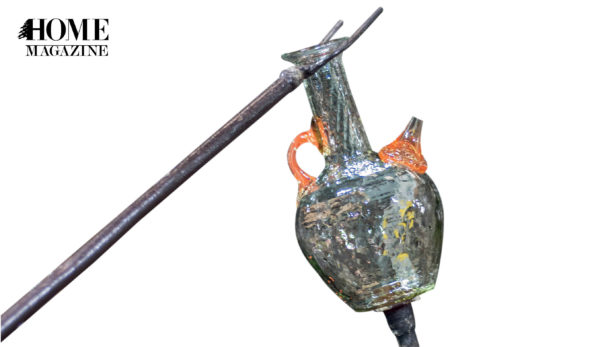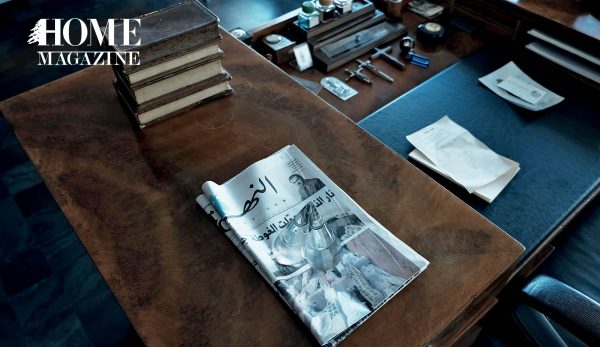ON THE PERILS OF INDIFFERENCE
I was behind a curtain, hardly resisting. I stood idle as she unbuttoned my sweater. Powerless, I watched her every move, her hungry hands stroking my arms, my shoulders, tightly cupping my breasts, hugging my upper body, caressing my waist.
I stood breathless. She grabbed my rear end, rubbed every inch of my thighs, and with an upward movement, rested her hand firmly on my genitals. Without speaking a word, the moment ended. We separated.
It would be colorful to say this was a passionate encounter between me and another woman. Instead, it was the result of a pat down at the airport in Beirut. Typically, when the metal detector lights up, women are guided to a small, curtained room, where a female employee awaits to give them a ‘full’ inspection. As I walked out from behind the curtain feeling puzzled, defenseless, violated, I searched for someone to complain to. There was no one around to inform that the employee had gone too far, that she was aggressive, disrespectful and unapologetic.
The plane was about to board.
Eager to find an empathizing soul, I ask the woman seated next to me on the plane if this had happened to her and if she was bothered: she said that the airport employee also cupped her breasts and touched her genitals, but she thought little of it. Who was at fault, I wondered: the employee ‘doing her job,’ the indifferent traveler, or was I the one ‘exaggerating’? Would a man accept that his genitals be fondled by another man behind a closed curtain every time he left the Beirut airport; every time that metal detector beeped? Instead, with no curtained room for the men, they were being patted down in full view; their genitals were not being stroked, their bodies were not violated.
Having seen and felt this, did I object? Did I demand a more respectful pat down? Did I denounce the rules and highlight the discrepancy in the treatment of men and women? Did I write about it in the newspaper to bring it to people’s attention? I did not. I knew full well what I should have done, but I chose instead to engage in willful indifference – I chose to ‘let it go.’
With a troubled conscience, I continue to let many things go, telling myself they are insignificant, harmless, common practices. Like ignoring advertising billboards strewn all over Lebanon’s roads, distastefully and unnecessarily exhibiting women’s bodies. We let it go. Or dismissing the value we place on a woman’s physical appearance above all else, each of us craving an unreachable ideal, engaging in plastic surgery ‘just a little here and there, for my own self-esteem’ we say, ignoring the role that societal expectations had in our decision-making.
We let it go. Or turning a blind eye to abused women who still cannot get full protection from the state. We let it go. Or accepting that women continue to pay the price of war, unable to pass on their nationalities to their children. We let it go. It all starts with our willful indifference and ends with society’s discriminating attitudes and actions towards women – the unarticulated, silent, implicit and explicit discriminations. If we continue to ‘let it go,’ the curtained room in the airport will forever be there; our dignities, our rights, our value as human beings will forever be hidden behind that curtain.
SPORTS IS A MUST
QUOTE ME NOT; I am not a doctor nor I am an engineer and by far from being an expert.
I am only sharing with you my observations and learnings throughout my career and by working closely with sports governing bodies to develop youth sports academies to encourage young people to develop sport as a habit and as a quality of life.
Of course as a parent we always strive to create a sporting habit and improve the quality of life of our children; so we enroll them to private sports coaching and pay exorbitant amounts. But what we don’t realize is that we are not building a habit for life and young people who continue to play sports falls dramatically at the age of 14 because our children shift their priorities and energy to other social activities in life.
How can we address this?
– Building a lasting legacy of competitive sport in schools – by creating school games to provide a unique opportunity to motivate and inspire our children across the country to take part in more competitive school sport than ever before. All schools need to create a year-round sporting calendar, with various sports available, specifically designed to get young people competing at intra-school and inter-school levels and culminating in local, regional and national events. The school games will also provide opportunities for students to get involved through organisation, officiating or volunteering.
– Improving links between schools and sports clubs or academies. Young people often try new sports for the first time at school. However, whilst many young people enjoy that experience and take part enthusiastically, for a number of reasons, they don’t continue once they have left that structured environment – where facilities, team mates, coaches and competition are all readily available.
Helping young people to continue to play sport outside school, or university, when faced with the huge range of activities and other distractions competing for their time, is crucial to creating a sporting habit for life.
We want to ensure that there are as many opportunities as possible for young people to play sport both inside and outside of school.
To do this we need to strengthen he relationship between clubs/academies and schools, further education colleges and universities – creating a new network of school and community club links – involving every school and a wide range of sports which are most attractive to young people across the country.
– Influential people and sports governing bodies to focus on youth by funding sports academies, clubs and facilities. We need a sport investment plan to deliver the following outcomes:
– A growth in participation in the 14-25 age range
– An excellent sporting experience to keep people playing sport
– High quality talent development to create better talent pool and help those with real potential to shine
Most sports halls and sports pitches are located at schools. However, many of these facilities are under-used, enjoyed by children during term time but left dormant during the holidays or in the evening. To maximize these valuable sporting assets, the sport governing bodies need to fund those schools to enable them to open up their sports facilities for use by their local communities and help them to maximise the use of all their pitches and sports halls.
Why shall we address this?
Sport and physical education is fundamental to the early development of children and youth and the skills learned during play, physical education and sport contribute to the holistic development of young people.
Through participation in sport and physical education, young people learn about the importance of key values such as: Honesty, Teamwork, Fair Play, Respect for themselves and others, and Adherence to rules.
It also provides a forum for young people to learn how to deal with competition and how to cope with both winning and losing. These learning aspects highlight the impact of physical education and sport on a child’s social and moral development in addition to physical skills and abilities.
Once we have embedded this mentality and approach to life, we can start looking to hosting world-class tournaments and championships in our country to maximize our young children’s exposure to live sports, not only through a screen.
The above strategy has been developed in England after the Olympics and has proven to be successful. In 2008 Qatar imposed 2.5 per cent of the net annual profits of public corporations listed on the Qatar
Exchange to be collected by the Government and dedicated to the support of social, sporting, cultural and charitable activities.
































